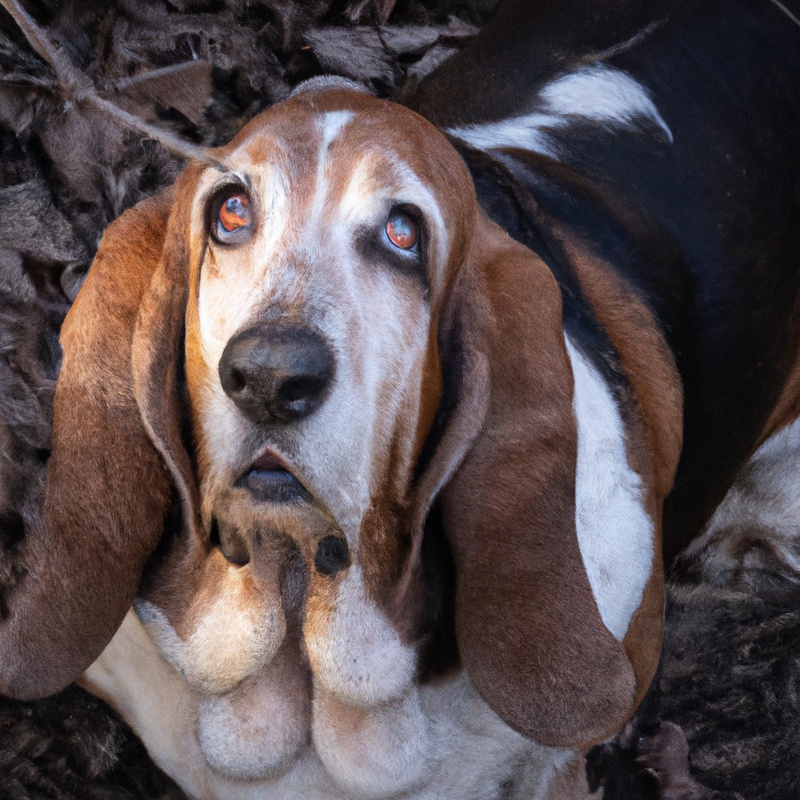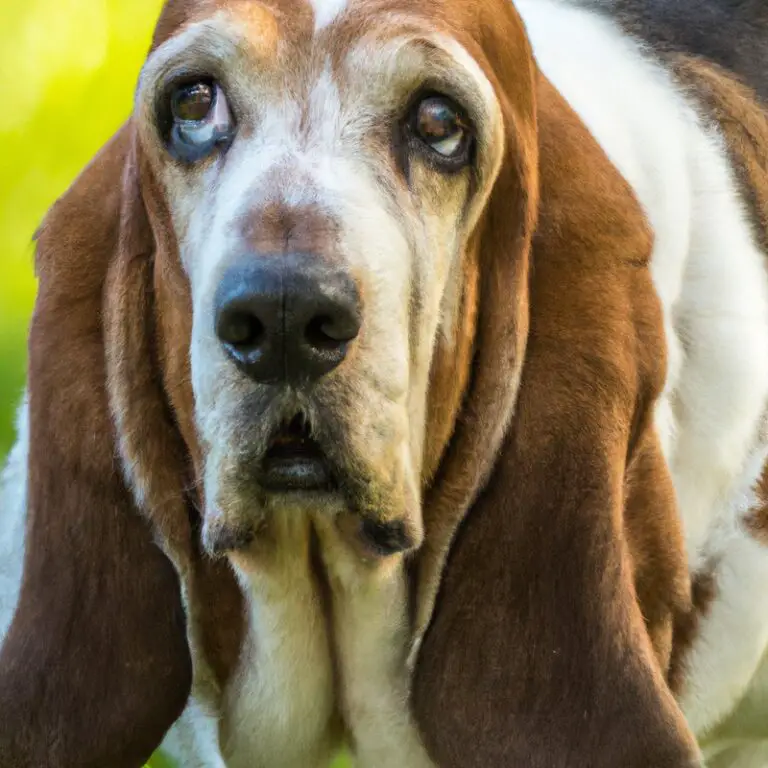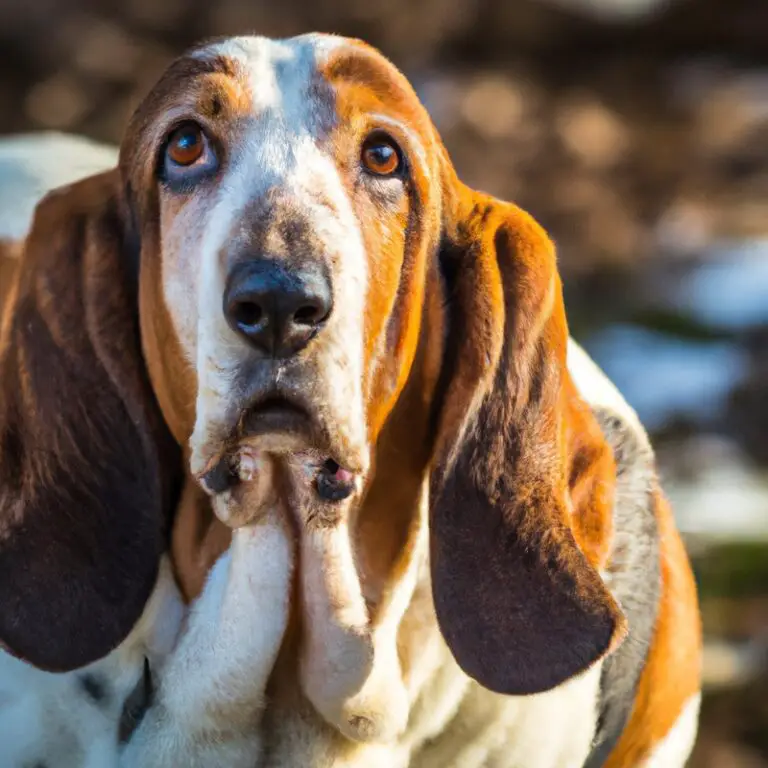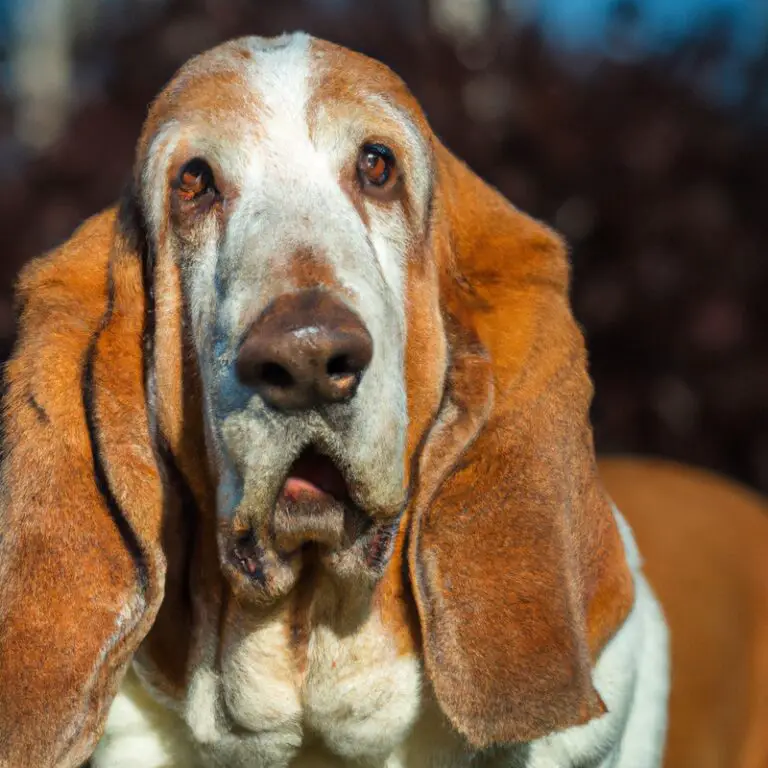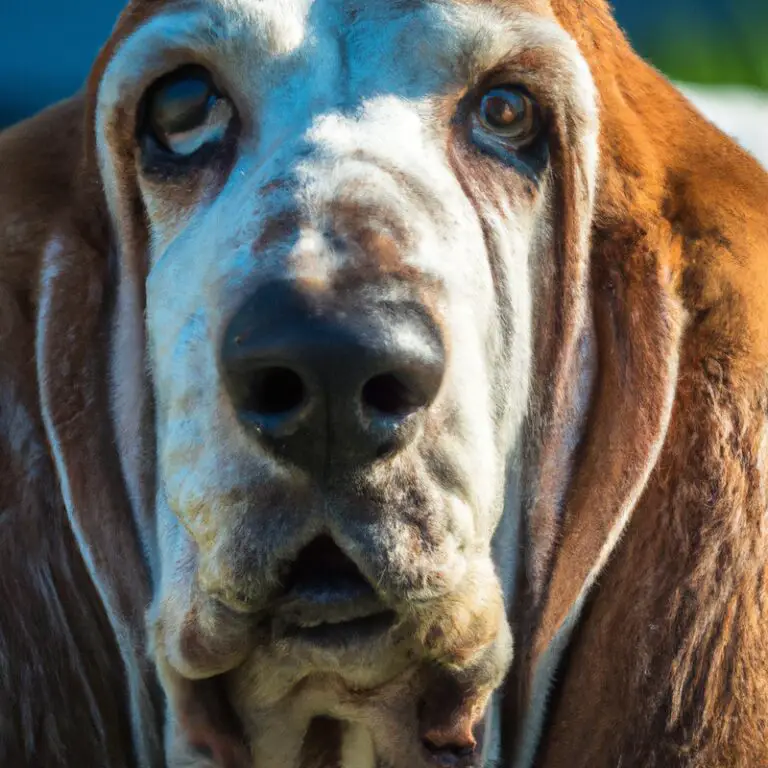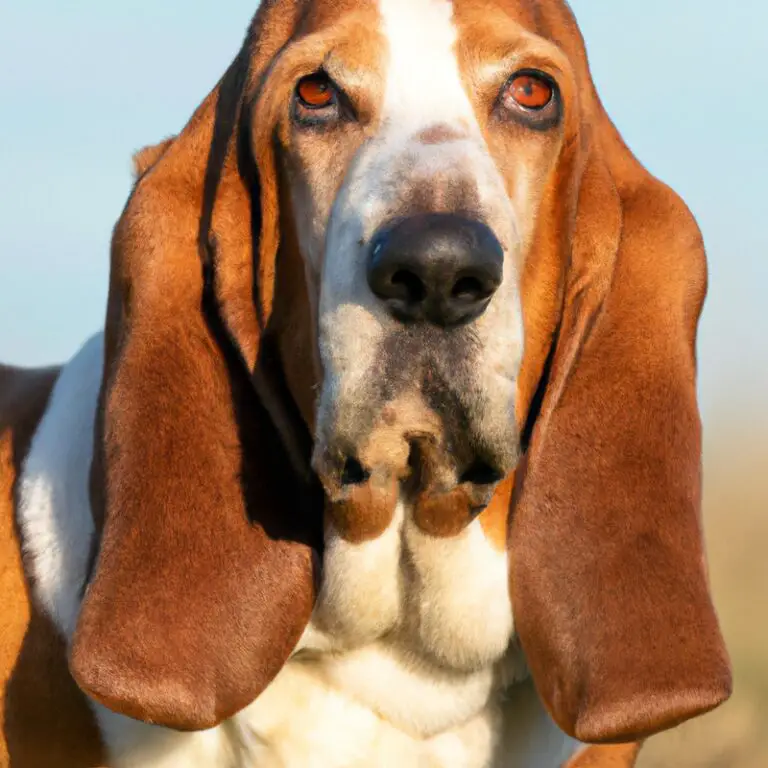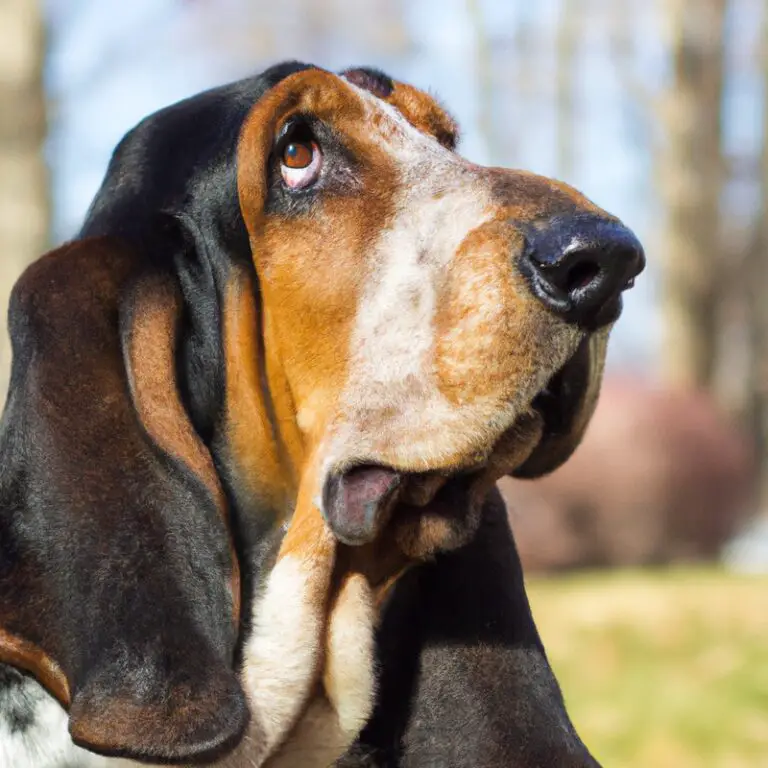Do Basset Hounds Have a Strong Instinct To Protect Their Family From Intruders?
Key Takeaways:
- Basset Hounds generally have a mild protective instinct towards their family members.
- They may bark or howl to alert their owners of potential intruders.
- However, their friendly nature and lack of aggressiveness make them poor guard dogs.
- Training and socialization can help enhance their protective instincts without making them overly aggressive.
Are you looking for a furry friend who is both lovable and protective?
Well, look no further than the Basset Hound! These unique and charming dogs are not only known for their signature droopy ears and soulful eyes but also for their natural protective instincts.
But just how strong are these instincts, and can they be relied upon to keep your family safe from intruders?
In this article, we’ll delve into the world of Basset Hounds, exploring their history, physical characteristics, and the factors that influence their protective instincts.
We’ll also discuss ways to nurture and enhance these instincts so your Basset Hound can be the ultimate family protector.
So, if you’re ready to unlock the secrets of this loyal and protective breed, keep reading!
| Aspect | Information |
|---|---|
| Instinct to Protect Family | Yes |
| Size and Appearance | Medium to large-sized dogs, with a distinct appearance |
| Temperament | Friendly, docile, and generally non-aggressive |
| Guard Dog Abilities | Moderate, can bark to alert but may not physically confront intruders |
| Training | Require consistent and patient training to develop protective behavior |
| Socialization | Proper socialization from a young age can enhance protective instincts |
Understanding Basset Hounds: A Brief Overview
Origins and History
Basset Hounds have a rich history that dates back to 16th-century France. They were initially bred as scent hounds for trailing small game in the countryside.
Their distinct physical characteristics, such as their long ears and droopy eyes, were developed to aid in tracking scents close to the ground.
Over time, Basset Hounds gained popularity for their exceptional tracking abilities and friendly nature. Today, they are beloved family pets known for their gentle demeanor and strong sense of smell.
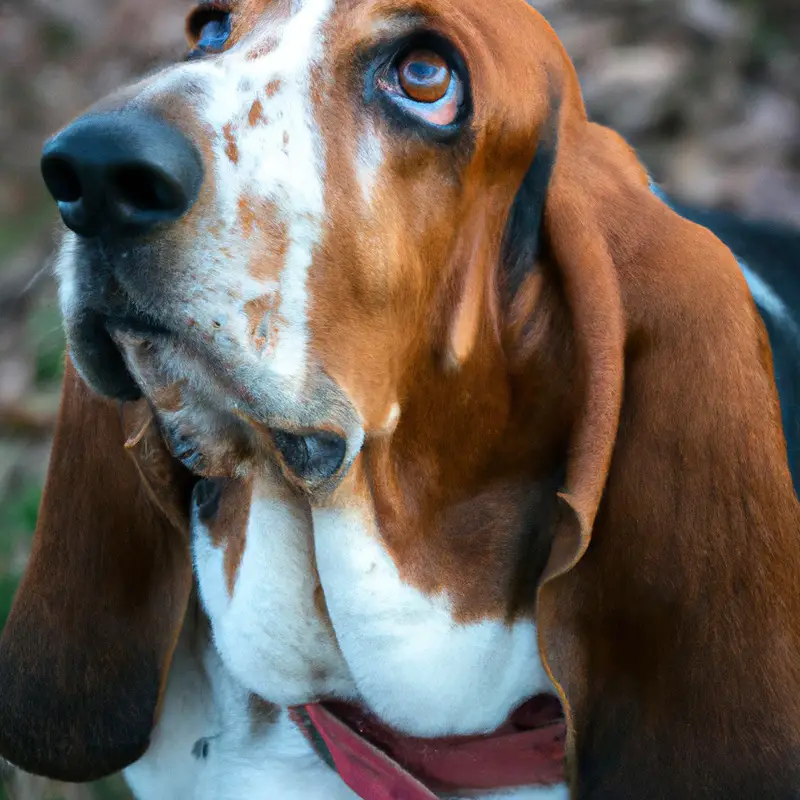
Physical Characteristics and Temperament
Basset Hounds are known for their unique physical characteristics, such as their long ears, droopy eyes, and short legs.
They have a sturdy and low-set body, making them quite heavy for their size.
Their coat is short and dense, which requires minimal grooming.
When it comes to temperament, Basset Hounds are generally laid-back and friendly.
They are affectionate, loyal, and sociable dogs, making them great companions for families.
However, they can be a bit stubborn during training.
Despite their calm nature, Basset Hounds can also have a stubborn streak and may be prone to laziness if not given enough exercise.
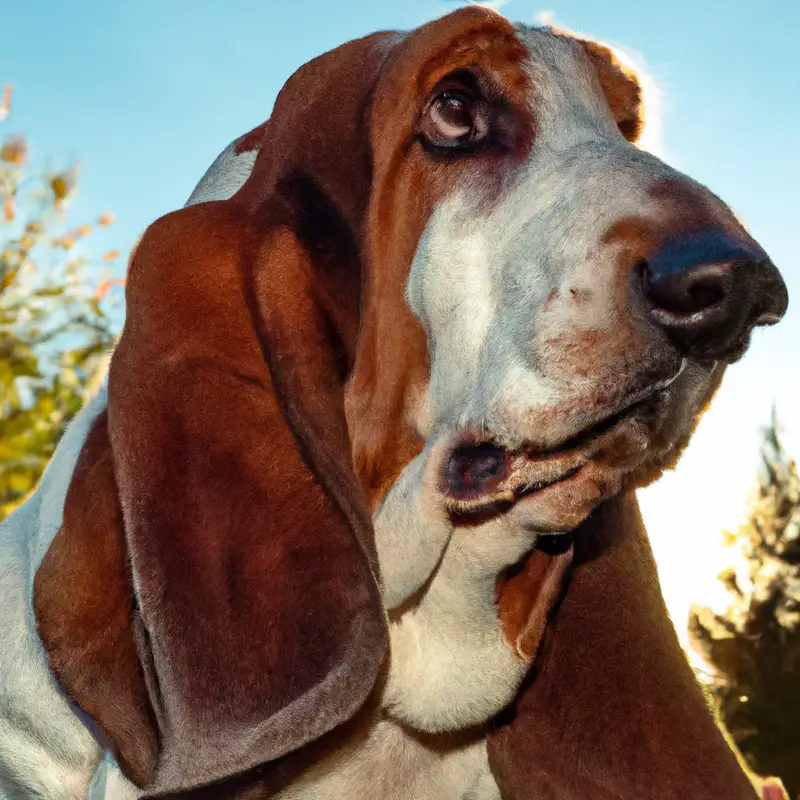
Instincts of Basset Hounds
Tracking and Hunting Background
Basset Hounds have a rich tracking and hunting background. They were originally bred in France for hunting small game, particularly rabbits and hares.
Their keen sense of smell and low-to-the-ground body structure make them excellent trackers.
Their instinct to track and follow scents is deeply ingrained in their DNA. This makes them highly skilled in tracking and sniffing out trails.
Basset Hounds have an incredible ability to stay focused on a scent for long periods of time, which is why they excel in activities like tracking trials and scent work.
Overall, their tracking and hunting background is an important part of their breed history and characteristics.
Natural Protective Instincts
Basset Hounds have natural protective instincts, although they might not be as strong as some other breeds. These instincts stem from their history as hunting dogs and their strong bond with their family.
Bassets are known to be loyal and alert, making them great watchdogs.
While they may not be aggressive, their instinct to protect their family from potential threats is still present. However, it’s important to note that each individual dog may differ in their protective nature.
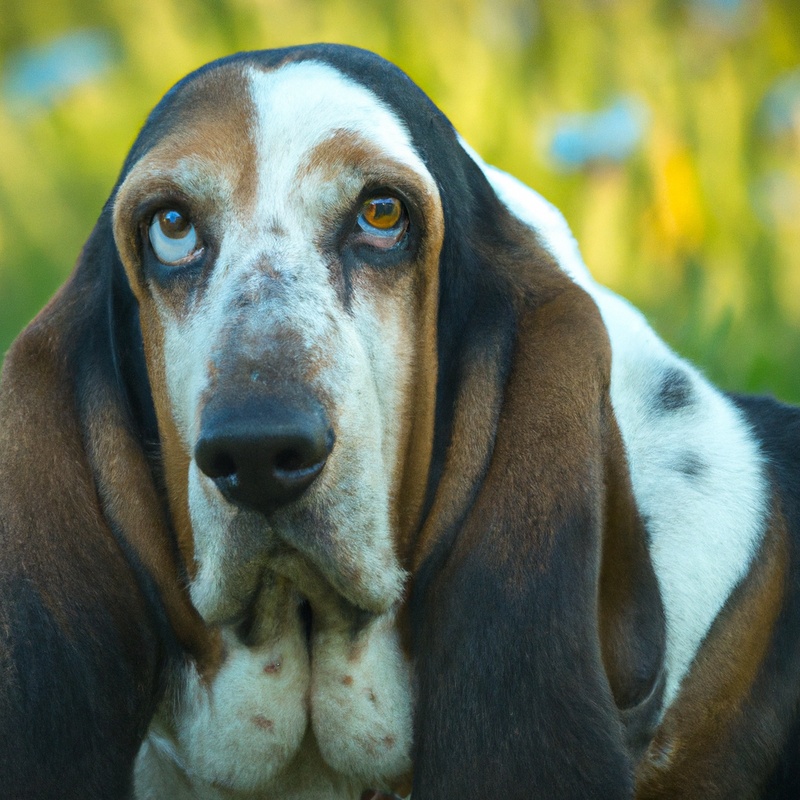
Factors Influencing Basset Hound’s Protective Instincts
Genetics and Breeding
Genetics and breeding play a significant role in shaping a Basset Hound’s protective instincts.
Through selective breeding, certain traits such as loyalty, alertness, and territoriality can be emphasized and passed down to future generations.
Breeders who prioritize breeding for protective instincts can contribute to the development of Basset Hounds with a stronger drive to protect their family.
However, it is important to note that genetics alone cannot guarantee a Basset Hound’s protective nature, as training and socialization are also crucial factors.
Socialization and Training
Socialization and training are essential for developing a well-rounded Basset Hound.
To ensure their protective instincts are properly honed, it’s crucial to expose them to various environments, people, and animals from a young age.
Engaging in positive reinforcement training methods will help them understand what behaviors are acceptable.
Consistency is key when it comes to training, and incorporating obedience commands will establish boundaries and reinforce their role as a family protector.
Training should be a lifelong process to maintain a well-behaved and protective companion.
Basset Hound as a Family Protector
Bonding with the Family
Bonding with the Family is essential for Basset Hounds. They thrive on love and attention from their human companions.
Spending quality time together, such as going for walks or playing games, helps strengthen the bond.
Bassets are known to be affectionate and loyal, making them excellent family pets. They enjoy being part of family activities and are sure to bring joy and smiles to everyone’s face.
Building a strong bond with your Basset Hound is a rewarding and fulfilling experience.
Alertness and Watchdog Abilities
Basset Hounds are known for their alertness and watchdog abilities. With their keen sense of smell and excellent hearing, they can quickly detect any unusual sounds or smells around the house.
They have a tendency to bark and howl when they sense something out of the ordinary, making them good watchdogs.
However, it is essential to note that their protective instincts may not be as strong as some other breeds. While they can alert their families to potential threats, they may not actively engage with intruders.
Interaction with Strangers
Basset Hounds are generally friendly and social dogs, which means they tend to have a positive interaction with strangers. However, their protective instincts may vary depending on their individual personalities and experiences.
Some Basset Hounds may welcome strangers with open arms, while others may be more reserved or even cautious.
It’s essential to properly socialize your Basset Hound from a young age to ensure they feel comfortable around new people. Encouraging positive encounters and providing consistent training can help enhance their social skills and create a harmonious interaction with strangers.
Nurturing the Protective Instincts
Positive Reinforcement Training
Positive reinforcement training is an effective way to nurture a Basset Hound’s protective instincts. This training method focuses on rewarding desired behaviors with treats, praise, or play.
By avoiding punishments or harsh methods, we can create a positive association in their minds.
Consistency and patience are key in training. Pairing the reinforcement with commands like “guard” or “watch” can help reinforce the protective behavior.
Exposure to various situations and socialization with different people can also enhance their confidence and independence.
Exposing to Various Situations
Exposing Basset Hounds to various situations plays a key role in nurturing their protective instincts. By gradually introducing them to different environments, people, and scenarios, you can help them build confidence and learn how to assess potential threats.
This exposure helps them understand what is normal and what is not, making them more vigilant and responsive in protecting their family.
Take them on walks in different neighborhoods, introduce them to friendly strangers, and simulate simulated intruder scenarios to give them the experience they need.
Encouraging Confidence and Independence
Encouraging confidence and independence in your Basset Hound is important for their overall well-being. One way to do this is by providing them with positive reinforcement when they exhibit independent behavior or show confidence in certain situations.
For example, if they explore a new area on their own or approach new people calmly, praise and reward them.
Additionally, allowing them to make their own choices (within safe boundaries) and exposing them to various environments and experiences can help foster their confidence and independence.
Understanding Basset Hound’s Limitations
Size and Physical Strength
Basset Hounds may not be the largest dogs, but their size and physical strength can still be beneficial. With their low center of gravity, Bassets are stable and sturdy.
This makes them less likely to be easily knocked over or pushed aside.
Their powerful sense of smell, combined with their endurance, allow them to track scents for miles. Although they may not have the strength to physically overpower an intruder, their loud and deep barks can serve as a deterrent.
Additionally, their sheer presence can be intimidating to potential threats.
Non-Aggressive Nature
Basset Hounds are known for their non-aggressive nature. They are generally gentle, easygoing, and friendly dogs.
They are not prone to aggression towards humans or other animals.
This makes them excellent family pets as they are usually sociable and get along well with children and other pets. However, it is important to remember that every dog is an individual, and proper socialization and training are still necessary to ensure a well-behaved and non-aggressive Basset Hound.
Regular exercise, positive reinforcement, and early socialization can help maintain their good nature.
Tips to Enhance Basset Hound’s Protective Instincts
Secure Your Home and Property
To secure your home and property when you have a Basset Hound, there are a few key steps you can take:
- Install secure fencing: Basset Hounds are known for their wandering nature, so it’s important to have a sturdy fence around your property to prevent them from roaming. Make sure the fence is high enough and has secure gates.
- Secure entrances and windows: Basset Hounds may not be aggressive, but they can alert you to potential intruders. Ensure all doors and windows are locked properly to keep your home secure.
- Use alarms and surveillance systems: Consider installing an alarm system or surveillance cameras to deter intruders and monitor any suspicious activity.
- Keep valuables out of reach: Basset Hounds have a curious nature and may be tempted to explore. Keep valuable items and potentially dangerous objects out of their reach to prevent any accidents or damage.
- Remove potential hazards: Basset Hounds have a keen sense of smell and may be attracted to certain items like chemicals or toxic plants. Keep harmful substances and plants out of their reach to ensure their safety.
Remember, keeping your Basset Hound secure and your home protected go hand in hand. By taking these steps, you can create a safe environment for both your furry friend and your property.
Consistent Training and Socialization
Consistent training and socialization are key to enhancing a Basset Hound’s protective instincts. By providing regular training sessions, I can teach my Basset Hound important commands like “sit,” “stay,” and “come.” This helps establish leadership and promotes obedience.
Socialization involves exposing my Basset Hound to various environments, people, and animals.
This helps them become comfortable and confident in different situations, reducing fear and anxiety. Consistent training and socialization create a well-rounded and balanced Basset Hound, ready to protect their family if the need arises.
Final Verdict
Basset Hounds do have a strong instinct to protect their family from intruders, although it may not be as pronounced as in some other breeds. Their tracking and hunting background, along with their natural protective instincts, make them capable of being alert watchdogs.
However, genetics, breeding, socialization, and training also play a crucial role in nurturing and enhancing these protective instincts.
While Basset Hounds may not be as physically imposing as other guard dog breeds, their loyalty, alertness, and non-aggressive nature make them reliable family protectors. By providing consistent training, socialization, and a nurturing environment, you can encourage and strengthen their protective instincts.
Taking the necessary precautions to secure your home and property is also essential when owning a Basset Hound.
Overall, Basset Hounds can be effective family protectors with the right upbringing and environment.

